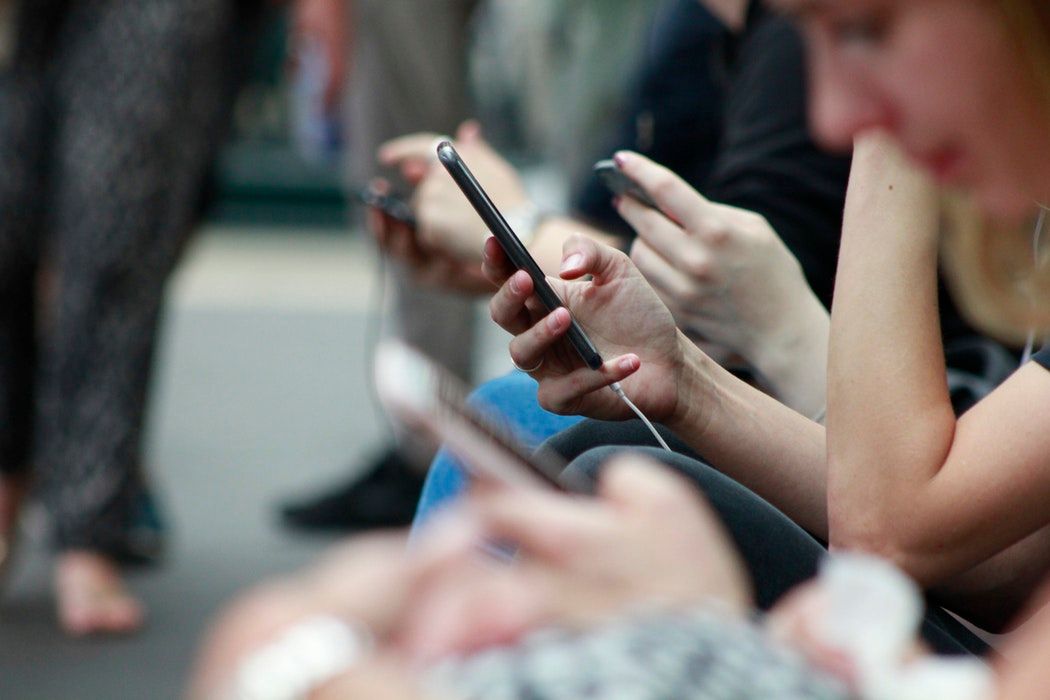In the second edition of Epigram Wellbeing's debate series, students Sabrina and Marina respond to the statement: Sharing your problems on social media is unhealthy.
For: 'Sharing personal struggles with mental health is really counterproductive.'
By Sabrina Miller, First Year, English Literature
Social media plays a prominent role in most of our lives. There is no way we can escape its impact. Facebook, Instagram, Twitter and Snapchat give us a wonderful opportunity to share real experiences with friends, family and followers. Unfortunately ‘real’ has become a fairly loose term when it comes to social media; most Instagram models sharing their lives through rose-tinted lenses. Whilst I believe it is important that we start being far more honest with each other online, I will contend that sharing personal struggles with mental health is really counterproductive. This is because it is very damaging for those suffering from a problem. It is essential that we protect the interests of patients first, as the harm that could befall sufferers of a mental illness are severe.
When you share something on Facebook one needs to realise that you’re sharing this information amongst friends, not therapists.
Why do I think it is so dangerous to share your problems online? Firstly, we need to consider who we are sharing this information with. When you share something on Facebook one needs to realise that you’re sharing this information amongst friends, not therapists. Only professionals know how to properly handle issues of such importance and it can be exceedingly dangerous if someone starts to take advice from someone who is not a medical professional. If you needed brain surgery you wouldn’t ask your Grandma to help the doctor on the operating table. If you needed a degree, you wouldn’t ask Tom - the guy you met during the first week of freshers- to lecture you. If you needed a dentist you wouldn’t ask Sally - the girl you met whilst on a gap year - to clean your teeth. The same principle should apply here. If you have a mental health problem, no matter how good-hearted Tom, Sally, or your Grandma are, they do not have the essential training to help you cope. Speak to a professional, not your friends on social media.
The danger with sharing your sadness and issues online is the addiction with the attention you'll get.
— Gep Macadaeg (@gepmacadaeg) March 5, 2017
It won't solve your problems at all.
Secondly, when deciding whether or not to post intimate details about your mental health online I believe you need to really consider the implications this has on your real life. Many people do not directly correlate their online life with their real life and this can be really destructive. Logically ask yourself, would you share such personal struggles with random people you encounter on the street? Would you speak about your depression with your mum’s friend that you’ve met a few times at dinner? That is essentially the same as sharing it on Facebook, because be honest, you do not know every single one of your ‘Facebook friends’.
You have a right to privacy and not every person you’ve ever interacted with needs to know about what you struggle with. The only reason that we think it is ok to share such private information online is because we don’t immediately feel the consequences. However that doesn’t mean that there aren’t real consequences. Do not let your mental health problems define you online, just like you wouldn’t want it to dominate your life offline. You have a right to privacy and don’t let social media take that right away!
Against: 'Being able to read other people’s posts or stories about their own wellbeing can help you feel less alone'
By Marina Afzal-Khan, Online Wellbeing Editor
When we think about the topic of social media and mental health, the words that are associated to it are usually always negative.
‘Omg you’re putting your whole life story on twitter, you’re oversharing!’
‘You’re just attention seeking.’
‘If you keep liking and reading sad posts, obviously you’re going to be sad!’
‘If you keep posting stuff, you’re going to get depressed.’
I’m here to actually show the benefits of social media for your mental health. For me personally, Twitter has been a safe haven. It has felt like a journal where I can write about my feelings and thoughts helping to put them into perspective. This has genuinely improved my wellbeing because I have been able to let it all out.
Essentially, being able to read other people’s posts or stories about their own wellbeing can help you feel less alone. You are able to feel a sense of community and can speak to other people in order to make sense of your own wellbeing. Mental illness can make you feel like you’re the only one experiencing it, so if you stay away from social media, you can feel isolated. Social media doesn’t just mean Facebook and Twitter, it also includes the use of forums, articles and videos. Some people post vlogs of their own mental health experiences which can be of comfort.
Some people find it really difficult to speak to their loved ones such as friends and family in real life about their mental health concerns. Being able to turn to social media can help them open up when ordinarily they are keeping it to themselves and sitting in silence. The fact is, of course whether social media has a positive or negative impact on one’s wellbeing depends on the individual. However, in my case, Twitter helped me escape. It became my safe place, I was able to write whatever I wanted and people were listening. I felt free, I felt liberated. It became my outlet as even for a little while, knowing that I didn’t have to always bother my friends and I could just tweet about my anxiety, depression and feelings in general. This helped me feel reassured.
For mental health struggles, it can be a place where they are free to share whatever they want too without being judged and without the danger of stigma.
Twitter in general has started so many movements and mental health campaigns such as the #MeToo movement and allowed an increase in various other wellbeing awareness campaigns. The point of all of this is that social media isn’t all that bad. Of course social media has its bad sides such as the constant need for approval and obsession with likes. Nevertheless, for mental health struggles, it can be a place where they are free to share whatever they want too without being judged and without the danger of stigma. Social media can help you build connections, strengthen relationships, allow you to speak freely, seek help and help you feel less alone.
Featured Image: Unsplash / Robin Worrall
Which side do you agree with? Comment below or get in touch!









